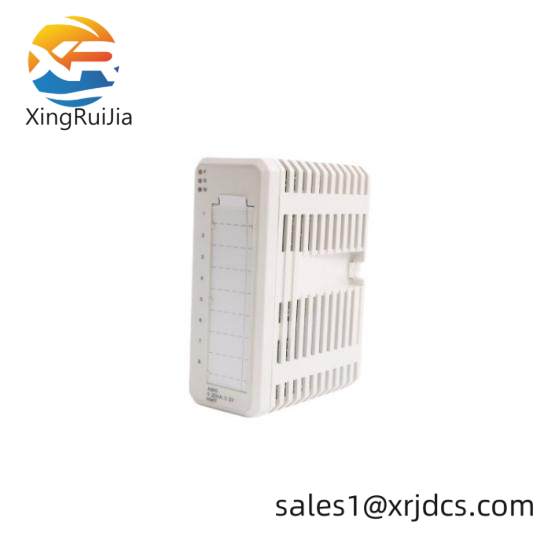ABB EC-BOM-G009HLA012
Type:MFD Control Unit
Model:EC-BOM-G009HLA012
Brand:ABB
Operating Temperature:-20°C to +55°C
Storage Temperature:-40°C to +70°C
Display Size:12.1″
Screen Resolution:800×600 pixels
Power Consumption:Max 25W
Communication Interfaces:Ethernet, RS-485, CANopen
Certifications:CE, UL, CSA
Integrating cutting-edge technology, the ABB EC-BOM-G009HLA012 MFD Control Unit is a game-changer in industrial automation, providing unparalleled performance and reliability. This module is meticulously crafted to enhance efficiency and accuracy in your manufacturing operations.
Featuring a compact design that seamlessly integrates into any industrial setup, it boasts an impressive operating voltage range and low current consumption, ensuring minimal power usage and maximum operational stability. The MODBUS communication protocol facilitates easy connectivity with a variety of industrial systems, enhancing interoperability and data exchange.
With its robust temperature and humidity tolerance, the ABB MFD Control Unit is built to withstand harsh industrial environments, guaranteeing reliable operation under diverse conditions. Its lightweight construction and compact dimensions make it ideal for space-constrained applications, without compromising on functionality.
This MFD Control Unit from ABB is not just a component; it’s a solution designed to elevate your automation capabilities. It offers precise control over machinery and processes, reducing downtime and improving productivity. Whether you’re managing complex production lines or optimizing individual machines, this unit delivers exceptional results.
Investing in the ABB EC-BOM-G009HLA012 MFD Control Unit means choosing a partner committed to innovation and quality. With a track record of excellence in automation solutions, ABB ensures that your operations benefit from the latest advancements in technology, backed by comprehensive support and service.

********************************************************
We are an experienced and reliable dealer engaged in the supply of industrial PLC and DCS projects.
If you are interested in our products, please feel free to contact me!
•Manager: Jinny
•E-mail: sales1@xrjdcs.com
•Tel: +86-15359273791(WhatsApp)
•Shipping Port: Xiamen
•Ship to you via Fedex/DHL/TNT/UPS/EMS
•Package: Original packing with cartons

Frequently Asked Questions
1. Q: Are your items new or original?
A: Yes, they are new.
2. Q: Does have any stock?
A: We have a large warehouse of goods in stock, so we can guarantee fast delivery.
3. Q: Can you offer discounts?
A: Yes, if you order more, we are happy to give you a discount.
4. Q: What is your delivery lead time?
A: We have a lot of stock and you will receive it in 3-5 days.
5. Q: Do you test the products before delivery?
A: Yes, we have professional technicians to test the goods beforehand.
6.Q: Can I pay the deposit at first if I buy many goods?
A:After receive your deposit,we will ask the warehouse to start arrange the goods for you.
7.Q: Can I get any discount?
A: The price is negotiable and we will give you the reasonable price according to your order quantity.
8.Q: How much should I pay for shipping costs?
A: It depends on the weight of the goods and the choice of express and destination.
Scope of application
A Distributed Control System (DCS) is a computer-based system used to automate, monitor and control complex industrial processes. It is essentially a large network of controllers that are distributed throughout a plant or facility, all working together to keep the process running smoothly.
Here’s a breakdown of how a DCS system works:
1. Sensors:These devices collect data from the physical process, such as temperature, pressure, flow rate, and level.
2. Controllers:These are programmable devices that receive data from the sensors and send control signals to actuators.
3. Actuators:These devices take physical action based on the signals they receive from the controllers, such as opening or closing valves, starting or stopping pumps, or adjusting heater settings.
4. Operator stations:These are the human-machine interfaces (HMI) that allow operators to monitor the process, make changes to setpoints, and troubleshoot problems.
5. Communication network:This network connects all of the devices in the DCS system together, allowing them to share data and control signals.









There are no reviews yet.